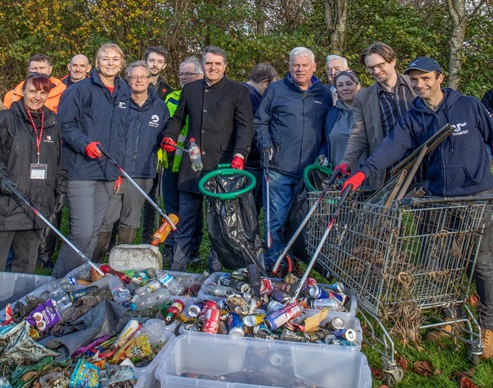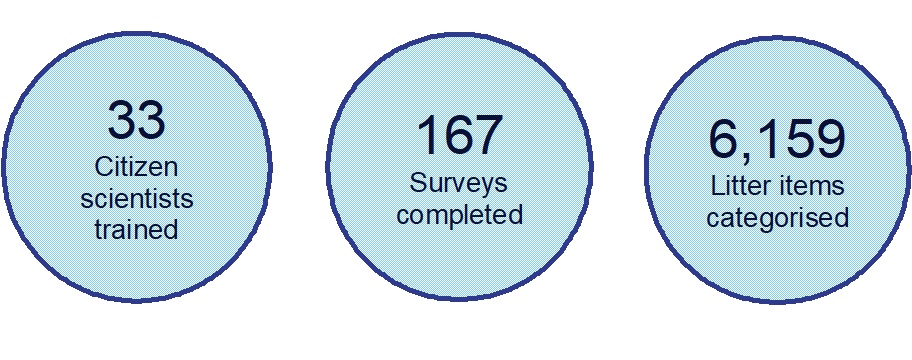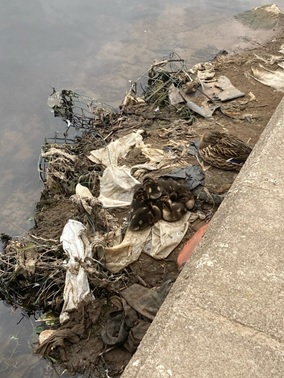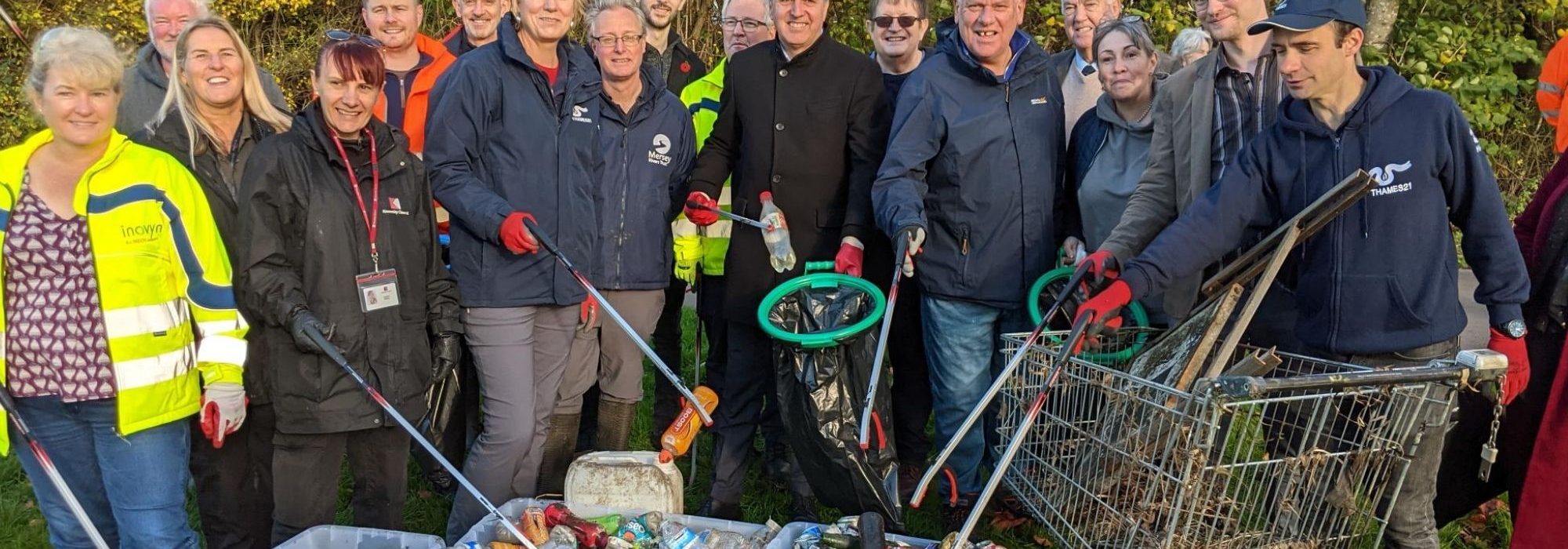Plastic Free Mersey project turns two in Manchester
Environmental charities Thames21 and the Mersey Rivers Trust will hold a ‘Plasticblitz’ litter pick community event on Wednesday 5 July to mark the second birthday and close the pilot phase of the Plastic Free Mersey project. This is an innovative, collaborative citizen science initiative which aims to reduce plastic pollution in the Mersey River catchment.
Thames21 and the Mersey Rivers Trust lead on this project, which is funded by LyondellBasell, INEOS Inovyn, Peel NRE, and the British Plastics Federation, and supported by RECOUP and SUEZ recycling and recovery UK (SUEZ).

Mersey Rivers Trust Co-Director John Sanders is coordinating the event, which he says “will involve a litter pick along the River Irk in north Manchester, with partners, trained citizen science volunteers, and members of the public. Litter collected will be analysed using our Plastic Free Mersey survey categories to assess the make-up of litter along the river”.
Commenting on the success of the Plastic Free Mersey project, which was launched in 2021, Thames21’s Head of Engagement and Education Chris Coode said: “Plastic pollution is an ongoing challenge in the River Mersey. By training and supporting citizen scientists, we are hoping to greatly increase the eyes and ears on the river, leading to more pollution sources being identified and stopped at source. The Plastic Free Mersey project has achieved a huge amount over the past two years via successful collaboration between environmental charities and partners across the plastic supply chain.”
Lois Kay, Sustainability and Engagement Manager at Peel NRE, said: “We are pleased to reaffirm our two-year strong commitment to Plastic Free Mersey by pledging to support this project for at least another two years. Peel NRE colleagues are always keen to get stuck in and clean up their local areas including Victoria Park in Warrington and Spike Island in Widnes alongside the team at Mersey Rivers Trust.”

Since the advent of the project, 33 citizen scientists have been trained, 167 litter surveys have been completed, and over 6,150 litter items have been counted, categorised, collected, and removed from Mersey Catchment waterways.
The project’s citizen science volunteers have collected data from 21 sites across 13 different waterways within the catchment, and the Mersey Rivers Trust are currently training more volunteers to monitor new sites in order to gain a deeper and more comprehensive understanding of plastic pollution issues across the catchment.
Key project findings and recommendations include:
- Plastic food packaging is the most common item across all sites, making up 21% (~1,300 items) of all litter collected
- The project supports Extended Producer Responsibility and Deposit Return Schemes (DRS); increased plastics recyclability; and education through outreach and signage at highly littered sites.
- 34% more litter was identified at sites with no bins.
- The project recommends the placement of more closed-top bins and better provision for cigarette butt disposal (11% of all litter)
- Sanitary items account for 86% (728 items) of litter collected at the River Irk site. This has been attributed to a Combined Sewer Overflow just upstream, which was open for 2,242 hours in 2022 (Rivers Trust data).
- The project advocates for more investment in sewerage infrastructure and labelling of all wet wipes as not flushable.
- Glass was the 8th most common item category found across all sites.
- The project advocates for glass bottles to be added to all DRS schemes in the UK.

Citizen science volunteers provide local expertise about their sites, giving us a clearer idea of what is happening on the ground and helping us to understand sources of waste (for example, through observations and photos of wet wipes at the River Irk site). This enables us to make specific recommendations to local authorities, such as bins with lids at the Mersey estuary sites, and bins beside benches along the River Weaver.
The Plastic Free Mersey project has achieved impressive results thus far, and project partners are excited to steer the focus of the project to enable the accomplishment of further successes in terms of citizen science findings, stakeholder engagement, and policy and behaviour change. Plastic litter has no place in the natural environment.
For more information about the project, please contact Project Coordinator Luca Marazzi – luca.marazzi@thames21.org.uk
